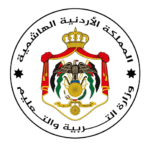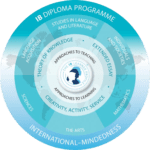The assessment policy is reviewed annually in May by the school council and coordinators.
IB/MYP Assessment Policy
College De La Salle Amman outlines its philosophy and approach to assessments.
Learn about formative and summative assessments, reporting formats, and the grading system.
ASSESSMENT PHILOSOPHY
College De La Salle fosters an environment that enhances the academic, spiritual, and emotional growth of each student. Assessments support student learning by identifying strengths and weaknesses and recognizing diverse learning needs. The formative assessment data provides teachers with the basis to adjust their teaching plans or summative assessments to suit varying classroom levels.
TYPES OF ASSESSMENTS
Assessments can take various forms, such as projects, research, reflections, reports, presentations, journals, models, etc. There are formative and summative assessments:
- Formative Assessments: These show student progress and aid in decision-making regarding planning and differentiation. They do not determine the final MYP result but provide students with the opportunity to reflect on their learning.
- Summative Assessments: Conducted at the end of a unit, these are designed before teaching the unit. Students are informed about the summative tasks to help them prepare.
Summative assessments vary according to student needs and learning styles. They are concept-based rather than content-based, aiding students in understanding the entire curriculum. These assessments are criterion-referenced, designed to:
- Align with specific subject objectives, independent of teacher judgment.
- Provide clear, defined criteria for expected achievement.
- Encourage self-assessment and improvement.
- Demonstrate conceptual understanding, knowledge, and skills.
- Offer curriculum design flexibility.
- Be applicable in various contexts and assessment tasks (IB 2014).
ASSESSMENT CRITERIA
Assessments align with MYP objectives and subject-specific aims. Objectives and criteria are presented to students in advance. Each criterion for every subject must be assessed at least twice each semester. All strands of the criteria should be assessed throughout the academic year, not necessarily in every task. Specific task clarifications should be used when appropriate. Teachers should use MYP objectives from Year 1 to Year 5 as outlined in the subject guides. Teachers must gather sufficient evidence from various assessment tasks and use the “best-fit” approach to determine the achievement level that best describes the student’s work. Teachers should professionally and judiciously determine the final achievement level for students.
REPORTING STUDENT ACHIEVEMENT
Teachers provide ongoing feedback on students’ work and assessments, allowing students to reflect on their learning and use higher-order thinking skills to improve and justify their educational experience. The school communicates student results to parents. Student performance and progress are discussed with parents during scheduled meetings, helping parents monitor and support their children’s educational journey. Poor performance is reported and discussed with parents before final results are announced, enabling parents to actively support their children’s learning process.
REPORTING FORMATS
1. School Reports
2. Parent-Teacher Meetings
3. Student-Led Conferences
2. Parent-Teacher Meetings
3. Student-Led Conferences
RELATION BETWEEN MYP AND REQUIRED GRADING SYSTEM
At the end of the academic year, the total of each subject’s criteria, combined with professional judgment, determines the final achievement level on a scale of 1-8.









